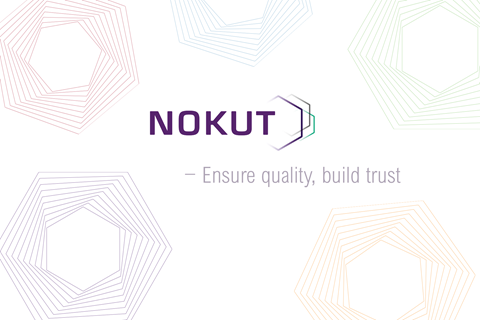Achieved many important goals
NOKUT's 20th year was both content rich and busy. Despite many parallel processes and growth in ordinary tasks, increasing numbers of applications, and a tight budget, NOKUT has performed well and can demonstrate good goal achievement in accordance with the new strategy, NOKUT 2030: Ensure quality, build trust.

In 2023, NOKUT contributed to the launch of 39 new study programs – all over the country. These range from vocational school programs such as "bar manager" and "wind power and energy storage" to a master's program in law. At the same time, this was also a year with a record number of applications for accreditation of new study programs and subject areas – a total of 144 applications. On top of that, we received 208 notifications of changes in study programs at vocational schools. These are changes that NOKUT must approve before the study programs can be implemented.
"The significant increase in applications in the vocational school sector has been particularly challenging. Therefore, it has been important to use the available resources effectively. Throughout the year, reallocations have been made across the organisation and between tasks. In addition, new working methods have been implemented, and processes have been simplified," says NOKUT's director Kristin Vinje.
Commendation from ENQA
An important milestone in the anniversary year was that NOKUT renewed its membership in the European Association for Quality Assurance in Higher Education, ENQA, and continued its registration in EQAR, which is a register of European quality assurance organizations that meet European quality standards, ESG.
"This confirms that the work at NOKUT is of internationally high quality. The evaluation panel particularly highlighted the good work NOKUT does with method development, and that we have a good and open dialogue with the institutions. They believed that this is something that will contribute to the quality development of the sector and ensure that quality work is not only done through control," says Vinje.
Good educational quality for all
Everyone should experience good educational quality where they study, whether it's at a university, a university college, or a vocational school. In Norway, we have a total of 10 universities, 38 university colleges, and 61 vocational schools, both public and private.
What all these institutions have in common is that they must meet requirements to ensure they have a system for maintaining and developing the quality of their education programs. As the accreditation and supervisory authority, NOKUT is responsible for ensuring that this happens, but the institutions themselves are responsible for ensuring that good work is done on educational quality at all levels.
"In our own strategy for the period up to 2030, we have outlined the course for how NOKUT will work to ensure quality and stimulate development in such a way that society trusts that vocational schools, university colleges, and universities deliver good education to their students. Students deserve the best possible education, while society is dependent on candidates being competent when they enter the workforce," says Vinje.
Accurate and tailored quality assurance
In 2023, NOKUT completed supervision of the systematic quality work at 4 universities, 1 specialised university, and 5 university colleges. In addition, we initiated 12 new such supervisions at university colleges. Thus, we have followed up on the quality work at institutions that together house more than 110,000 students in higher education. This represents about 1/3 of the students taking higher education in Norway.
"Through supervision, we contribute to ensuring, developing, and informing about quality in the study programs. When NOKUT conducts supervision, we check if the regulations are being followed and issue orders to correct the deficiencies we find. We will continue to adapt our working methods in the future so that institutions experience them as useful in their quality work and so that they can develop their study program portfolio," Vinje explains.
NOKUT's external quality assurance consists of both controlling and contributing to development. Our tools should be accurate and tailored to the characteristics and the academic powers of the institutions. We will stimulate development to a greater extent. Our reports and analyses will contribute to increased knowledge about various factors that affect the quality of study programs. In addition, we should ensure that the accreditation processes are efficient, so that more study programs are offered more quickly, and so that the business world gets better access to candidates with the right skills.
Thematic Issues
Three themes have been given a little more space in the annual report.
"The aim is to highlight examples that illustrate how our work has contributed to good results and given effects for the users or has had an important societal effect," says the NOKUT director.
Internationally recognized quality assurance body
In July, the final decision arrived – NOKUT was approved by ENQA for five more years. Shortly afterwards, we were approved by EQAR and included in their register. What does this mean for NOKUT? Why are these approvals so important?
Artificial intelligence and data sharing in NOKUT
At NOKUT, we are working to exploit the potential of both today's technology and the opportunities of the future. This is being done, among other things, by using artificial intelligence (AI) in analysis work and by ensuring better use of our own data.
NOKUT's periodic follow-up contributes to society's trust in educational quality
NOKUT's periodic follow-up with the systematic quality work of the institutions should contribute to society's trust that Norwegian higher education maintains a high international standard, and that both NOKUT and the educational institutions follow up on their obligations.
